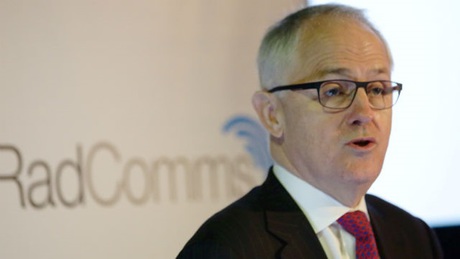Managing spectrum more flexibly and efficiently

Spectrum is a scarce and precious resource, critical to supporting a networked and digital society. Efficient use of spectrum will underpin future economic growth, with mobile broadband alone contributing $33 billion to the Australian economy in the six years to 2013, largely through productivity gains.
The legislative framework for managing the allocation and use of spectrum is more than 20 years old and was last reviewed in 2002, well before the exponential rise of wireless technologies. Consider that the first iPhone was released in 2007; there are now more than 12 million smartphones in use in Australia.
And this revolution of connected devices has only just begun. Gartner forecasts that the number of devices connected to the Internet globally will increase fivefold over the next five years, from 4.9 billion devices to 25 billion devices.
In this context, we need to manage spectrum more flexibly and efficiently.
The government’s Spectrum Review, being carried out by the Department of Communications, seeks to simplify the spectrum management framework by eliminating unnecessary regulations and facilitate new services and technologies that rely on spectrum, including cognitive radio and dynamic spectrum sharing.
I am currently considering the report from the first phase of the review. The department’s review team held more than 40 meetings with industry, government and community stakeholders and received more than 80 submissions.
It found that current regulatory arrangements are too slow, too rigid and too cumbersome. As a result, spectrum is not being allocated quickly and efficiently, and both industry and government are bearing unnecessary costs.
There is consensus for the reform. Together with the industry, we want a better, more forward-looking regulatory environment that offers flexibility in allocation and use; provides price and service predictability; supports user and industry confidence in the framework; and can respond to our current and future digital challenges.
One of those challenges is ensuring that digital technologies are leveraged for mission-critical communications. Two-thirds of the 8.5 million calls to Triple Zero are made from mobile phones and a robust and effective mobile broadband capability is a critical enabler for Australia’s public safety agencies - police, fire, ambulance and emergency services.
That is why the Productivity Commission has been tasked by the government to examine the best way to secure a mobile broadband capability to meet the long-term needs of Australia’s emergency services.
It is undertaking a ‘first principles’ analysis of the most efficient, effective and economical way of delivering this capability by 2020.
The commission’s inquiry will consider three options to deliver a public safety mobile broadband capability: deploying a dedicated network; relying entirely on commercial networks; and a combination of the two. It will assess the costs, benefits and risk of each and will also consider the sustainability and flexibility of each to meet technological developments. The commission is engaging widely with government, end users and industry on the issue. It is due to report by the end of this year.
RFUANZ report: setting the frequency for success in 2025
Last year brought a lot of internal change for RFUANZ, but the association has hit the ground...
ARCIA update: an extended event calendar for 2025
With the addition of Tasmanian events and a conference in Adelaide in September, 2025 will see...
ARCIA update: plans for 2025
ARCIA will be holding a mixture of workshop, conference and networking events in 2025, in the...





